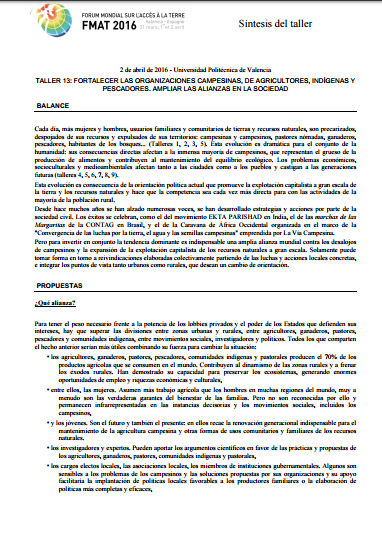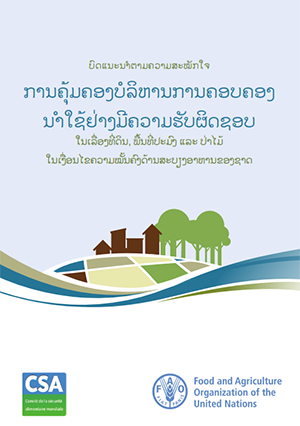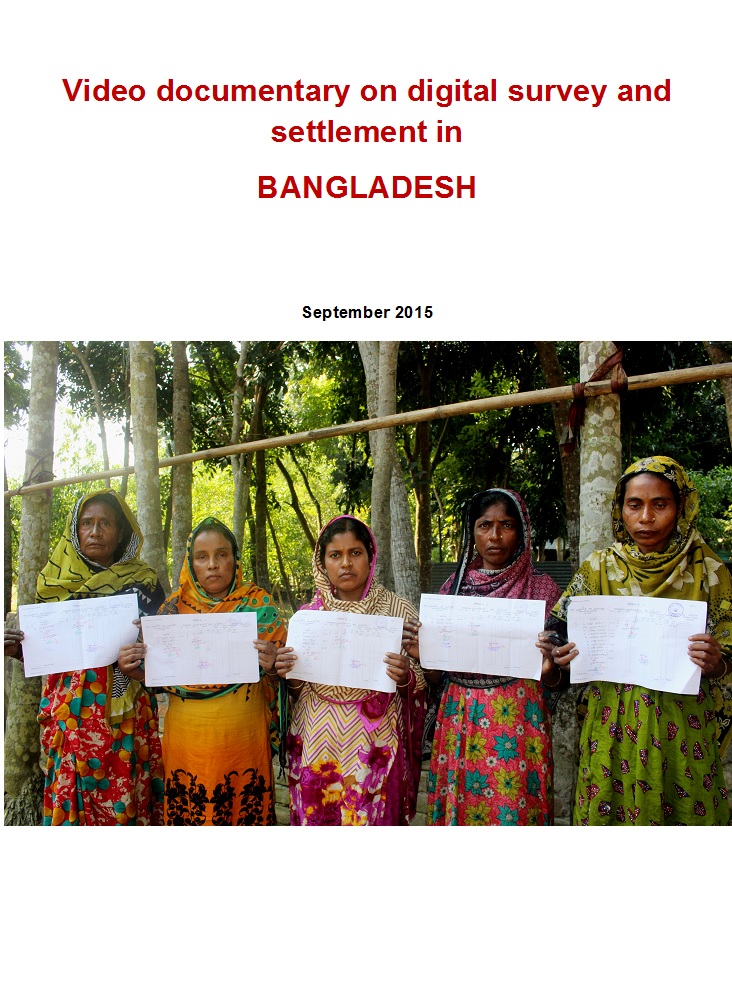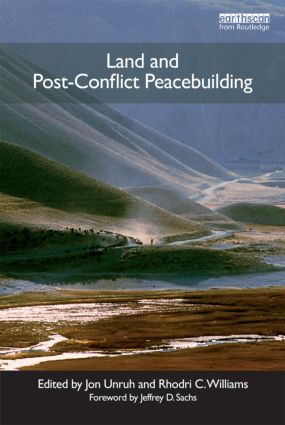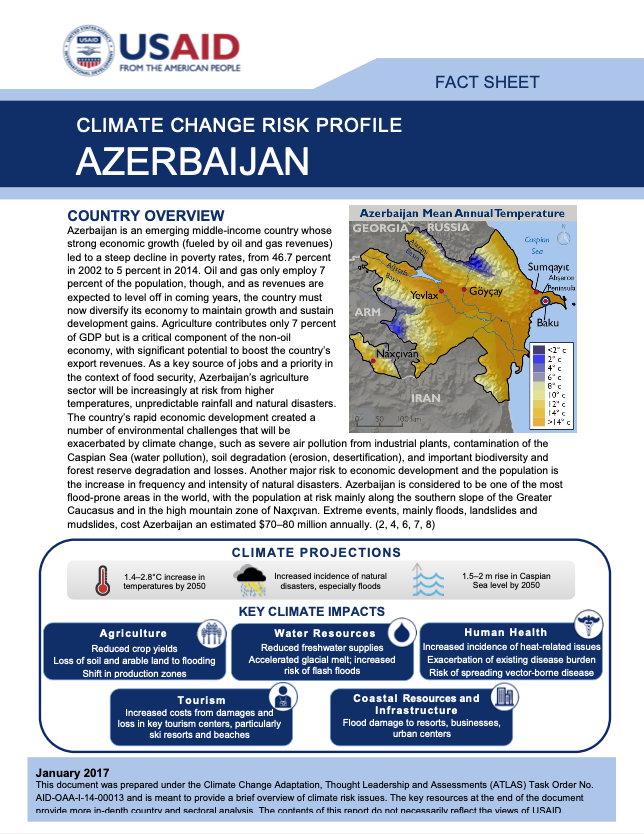TALLER 13: FORTALECER LAS ORGANIZACIONES CAMPESINAS, DE AGRICULTORES, INDÍGENAS Y PESCADORES. AMPLIAR LAS ALIANZAS EN LA SOCIEDAD
Cada día, más mujeres y hombres, usuarios familiares y comunitarios de tierras y recursos naturales, son precarizados, despojados de sus recursos y expulsados de sus territorios: campesinas y campesinos, pastores nómadas, ganaderos, pescadores, habitantes de los bosques… (Talleres 1, 2, 3, 5). Esta evolución es dramática para el conjunto de la humanidad: sus consecuencias directas afectan a la inmensa mayoría de campesinos, que representan el grueso de la producción de alimentos y contribuyen al mantenimiento del equilibrio ecológico.

